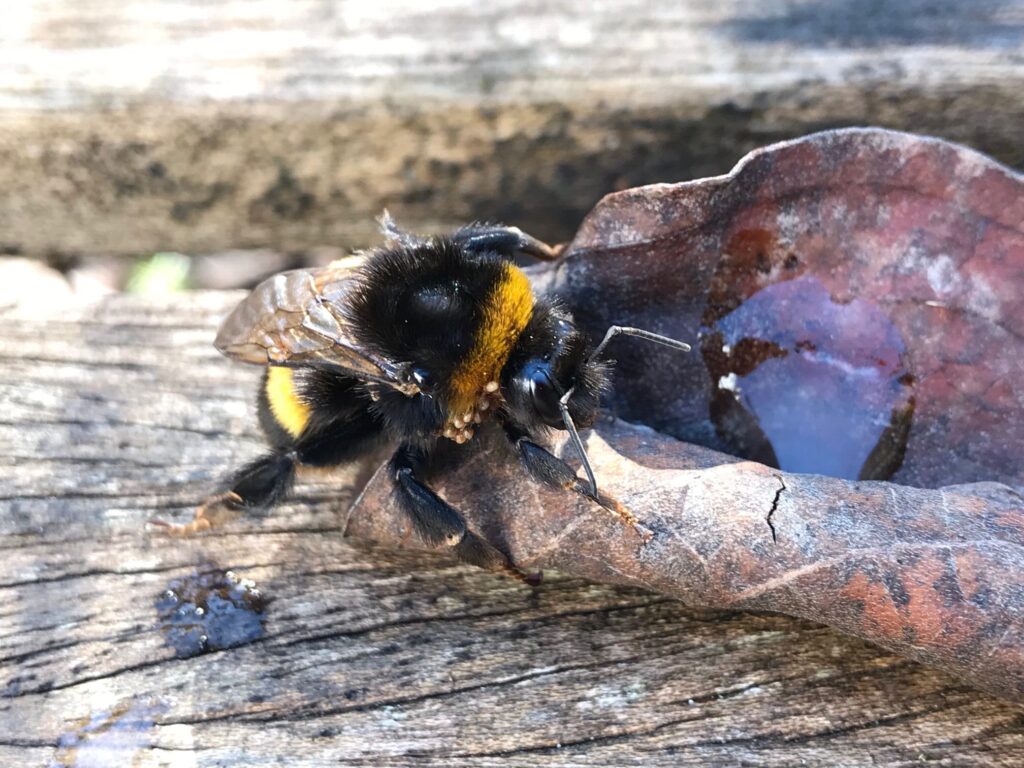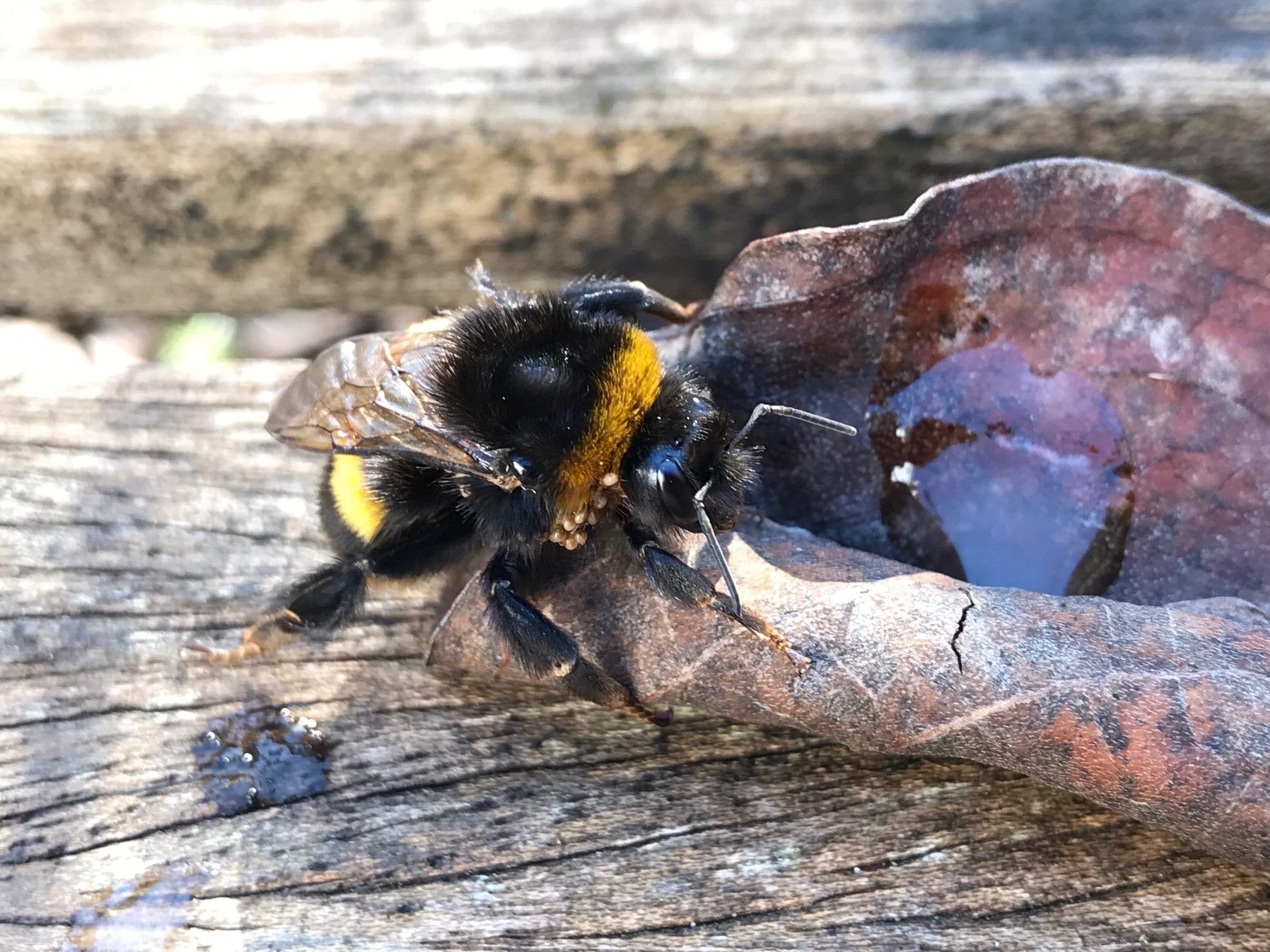Have you found an exhausted, bedraggled bee that needs some help? You can try and save it, with this simple ‘Bee Rescue’ remedy
Look out for ailing bees of all sorts in your spring garden (or at any time of the year). Early emerging or even just foraging bees can quickly become exhausted. They might be trapped inside and have run out of energy at a window trying to get out. Or they could be at ground level having run out of fuel to complete their journey. Some bees can get bedraggled by rain. Wherever they are you can help.

First make sure the bee is not sun bathing and drawing some warmth from the sun. If she’s wet and bedraggled then she probably needs your help now, but if she is just sunning herself it is better to leave her alone. It’s a good time to go an make up some bee rescue remedy (see below). Check back on her after twenty minutes or so and if she hasn’t moved on then use your judgement and do what you think is appropriate. You could gently move her onto a nectar rich flower or adminster bee first aid.
Bee rescue remedy
Make a small solution of sugar syrup, one part water to one part sugar. Dissolve the sugar by stirring and gentle heat. Do not boil or allow to get too hot. Cool quickly by placing a small amount in a large metal spoon.
Check the temperature. Once cool, take a tiny amount in a teaspoon. If the bee is in a safe place, put a drop or two of sugar solution in front of its face. It will quickly soak it up with its tongue. If she drinks the droplets, give her some more, but don’t touch her, don’t breathe on her and don’t get the sugar solution on her.
If the bee is in a dangerous place then either stand guard while you administer your bee rescue, so she won’t be stood on, or you will need to move her. Gently persuade her onto a dry spoon or a leaf or twig and move her to a safe place.
Once she has taken some bee rescue solution she will quickly take off and resume her activities. If you save a queen bee or even a female solitary bee, you are potentially saving hundreds, if not thousands. For each one, if it successfully makes a nest and produces daughter queens/females, could secure the future generations of that species. Every bee counts.
A word of warning though – don’t feed ailing bees honey. Although you might think that a drop of honey would be better than sugar (and actually some is), supermarket honey can contain the spores of some deadly bee diseases. You can’t see the spores, but if you feed them to a wild bee it can and will take any disease spores present back to its nest. Better to err on the side of caution and give a fast food fix to get your bee flying again than risk giving it another problem to deal with.

Leave a Reply